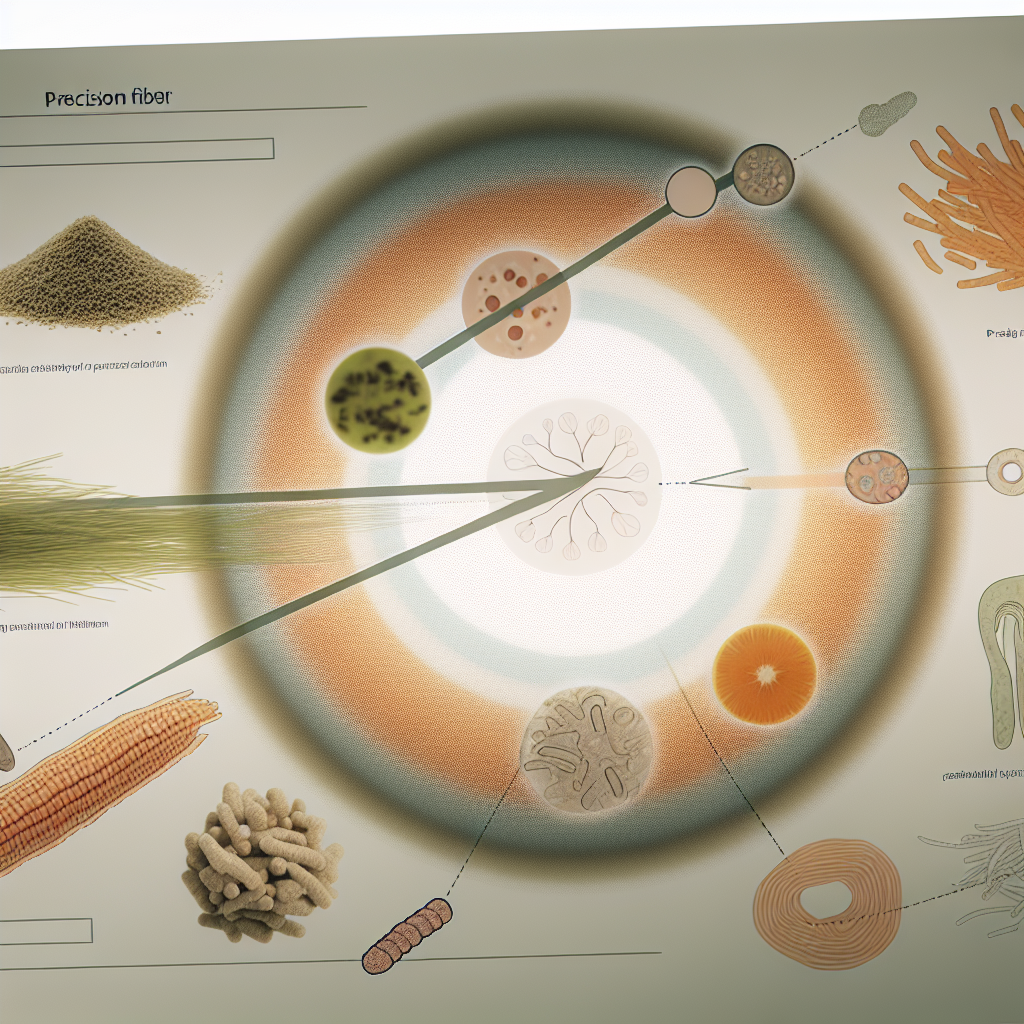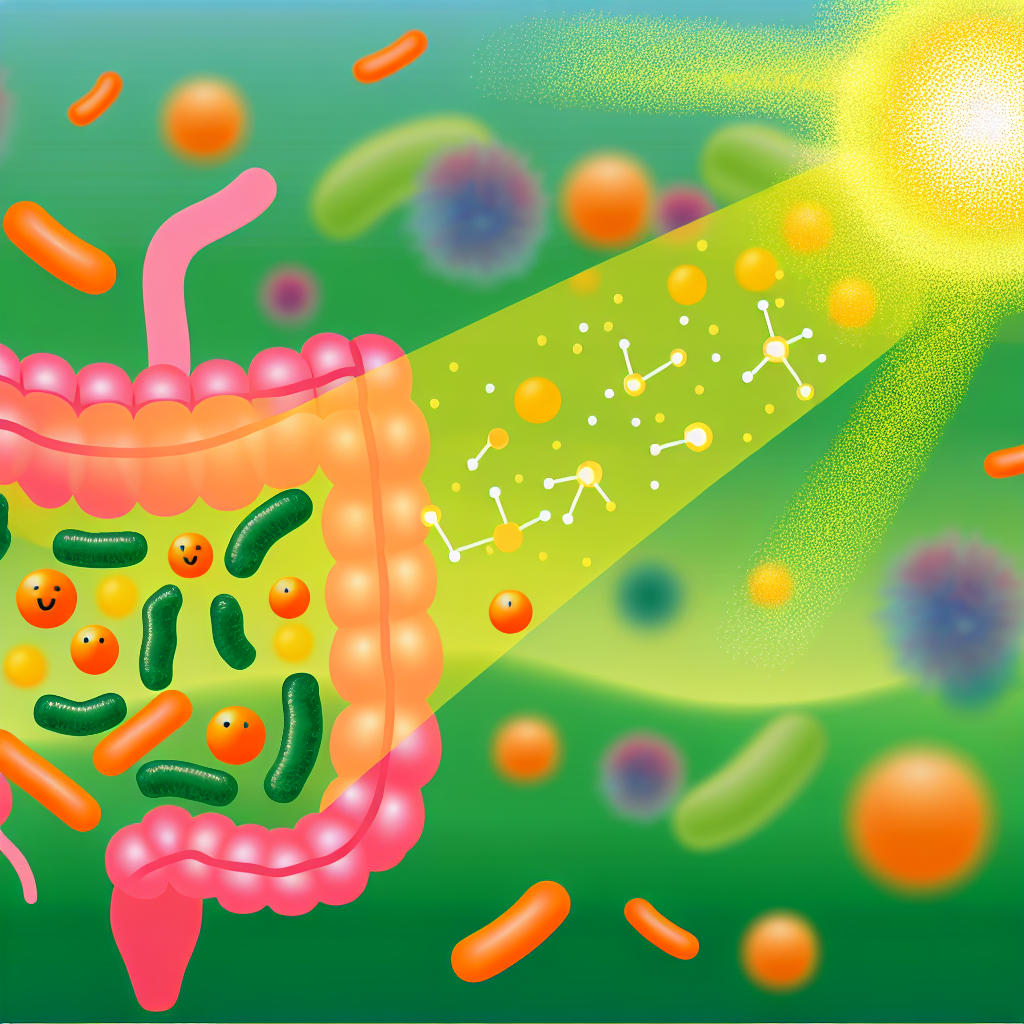Precision Fiber: Matching Prebiotic Types to Your Specific Gut Ecosystem
Understanding Precision Fiber and Its Scientific Backing
Numerous scientific studies support the idea that different prebiotic fibers selectively nourish specific strains of beneficial gut bacteria. Let’s examine some key prebiotics and the research backing their unique roles in gut health.
1. Inulin and FOS: Fueling Beneficial Bacteria
Inulin and Fructooligosaccharides (FOS) are naturally occurring prebiotic fibers found in foods like chicory root, onions, and garlic. They are well-known for their ability to promote the growth of Bifidobacterium species, which are beneficial bacteria linked to improved gut barrier function, reduced inflammation, and enhanced immune response.
A study published in Nutrients (2019) found that supplementation with inulin significantly increased Bifidobacterium levels while improving gut transit time and reducing symptoms of constipation ([1](https://www.ncbi.nlm.nih.gov/pmc/articles/PMC6770233/)).
2. Resistant Starch: Enhancing Gut and Metabolic Health
Resistant starch, found in green bananas, legumes, and cooked-and-cooled potatoes, resists digestion in the small intestine and ferments in the colon, producing short-chain fatty acids (SCFAs) such as butyrate. Butyrate plays a crucial role in maintaining colonic health and reducing inflammation.
A study in The Journal of Nutrition (2017) showed that resistant starch increased butyrate production and improved insulin sensitivity, illustrating its metabolic and gut health benefits ([2](https://www.ncbi.nlm.nih.gov/pmc/articles/PMC5546765/)).
3. Arabinoxylan and Beta-Glucans: Reducing Gut Inflammation
Arabinoxylan, found in whole grains like wheat and oats, and beta-glucans, present in barley and mushrooms, have been shown to enhance the growth of Faecalibacterium prausnitzii, a bacteria associated with reduced gut inflammation and improved mucosal integrity.
A clinical trial in Gut Microbes (2021) noted that arabinoxylan supplementation significantly increased the abundance of this beneficial bacterium, highlighting its potential for individuals dealing with inflammatory bowel conditions ([3](https://www.ncbi.nlm.nih.gov/pmc/articles/PMC7886774/)).
4. Galactooligosaccharides (GOS): Gut Harmony for IBS Relief
Found in dairy products, legumes, and human breast milk, GOS selectively stimulate beneficial bacteria such as Bifidobacterium and Lactobacillus.
A clinical study published in The American Journal of Clinical Nutrition (2020) found that GOS supplementation improved gut microbiome diversity and significantly alleviated symptoms in individuals suffering from Irritable Bowel Syndrome (IBS) ([4](https://www.ncbi.nlm.nih.gov/pmc/articles/PMC7599104/)).
5. Pectin: Strengthening the Gut Barrier
Naturally present in apples, citrus fruits, and berries, pectin encourages the growth of Akkermansia muciniphila—a gut bacterium linked to maintaining gut lining integrity, reducing inflammation, and improving metabolic function.
Studies suggest that individuals with metabolic disorders such as obesity and diabetes may particularly benefit from pectin-rich diets ([5](https://pubmed.ncbi.nlm.nih.gov/30076259/)).
The research is clear: different fibers nourish different microbial populations, making personalized fiber selection a crucial strategy for gut health optimization.
Conclusion: The Future of Gut Health is Precision Fiber
The era of precision fiber represents a transformative shift in how we approach gut health management. Instead of a generic fiber intake plan, individuals can now tailor their consumption to specifically nourish their beneficial gut bacteria.
Scientific studies highlight that prebiotics such as inulin, resistant starch, arabinoxylan, GOS, and pectin each serve unique functions, reinforcing that not all fibers provide the same benefits for every individual.
By understanding your gut microbiome composition through advanced microbiome testing and adjusting your dietary fiber intake accordingly, you can experience:
✅ Enhanced digestive health
✅ Reduced inflammation
✅ Improved metabolic function
As gut microbiome science continues to evolve, precision fiber may soon become a cornerstone of personalized nutrition, allowing individuals to take control of their gut health in a targeted, effective way.
Summary:
The article discusses the concept of “precision fiber” – the idea that individuals should tailor their prebiotic intake based on their unique gut microbiome composition for optimal digestive health. It explores the science behind different prebiotic types, such as inulin, resistant starch, arabinoxylan, GOS, and pectin, and how they selectively nourish specific beneficial gut bacteria. The article highlights research supporting the personalized approach to fiber consumption, and concludes that precision fiber may become a key aspect of future personalized nutrition strategies.

Dominic E. is a passionate filmmaker navigating the exciting intersection of art and science. By day, he delves into the complexities of the human body as a full-time medical writer, meticulously translating intricate medical concepts into accessible and engaging narratives. By night, he explores the boundless realm of cinematic storytelling, crafting narratives that evoke emotion and challenge perspectives.
Film Student and Full-time Medical Writer for ContentVendor.com




